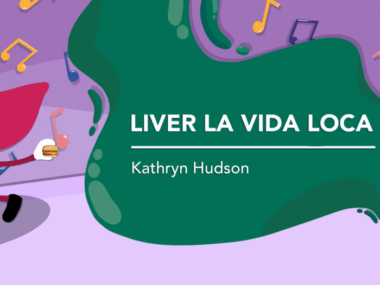Study testing fatty liver disease MASH therapy almost fully enrolled
Nearly 200 adults expected to join Phase 2b MONARCH clinical trial
Written by |

Enrollment is nearly complete in a Phase 2b clinical trial that’s testing Corcept Therapeutics‘ experimental oral therapy miricorilant in people with metabolic-associated steatohepatitis (MASH), a severe form of fatty liver disease.
MONARCH (NCT06108219) is expected to enroll nearly 200 adults at sites across the U.S., including Puerto Rico. Initial results are expected late next year.
“In our Phase 1b study, miricorilant reduced liver fat very rapidly, improved liver health and key metabolic and [fat-related] measures, and was well tolerated,” Bill Guyer, chief development officer at Corcept, said in a company press release. “We look forward to building on these promising results in our Phase 2b MONARCH study.”
MASH is a severe form of metabolic dysfunction-associated steatotic liver disease (MASLD), a condition where fat builds up abnormally in the liver in people who have underlying metabolic conditions such as high blood pressure, diabetes, or obesity. In MASH, excessive liver fat buildup leads to inflammation and fibrosis (scarring), which can set the stage for serious complications like liver failure and liver cancer.
Some evidence suggests that abnormal activity of the cortisol hormone may play a role in MASLD’s development and progression. Cortisol is produced when the body is under stress to regulate a number of processes, including metabolism and inflammation.
What is miricorilant?
Miricorilant is designed to lower the buildup of liver fat by selectively modulating the activity of cortisol receptors proteins. By fine-tuning the body’s response to cortisol, rather than completely suppressing it, the candidate should improve metabolic markers and reduce liver fat, while avoiding side effects of nonselective cortisol suppressors.
A U.S.-based Phase 1b clinical trial (NCT05117489) tested various dose regimens of miricorilant in 70 people with presumed MASH, with results indicating it reduced liver fat content and lowered markers of liver damage. Miricorilant was also generally well tolerated with no serious side effects reported.
MONARCH is testing the therapy against a placebo in adults with biopsy-confirmed MASH. The participants will be split into two groups. In group A, patients will be randomly assigned to either 100 mg miricorilant or a placebo twice weekly for 48 weeks (or nearly a year). In group B, participants will be assigned to miricorilant or placebo for 24 weeks (about six months). Those on the experimental therapy will receive 100 mg twice a week for the first six weeks and 200 mg twice weekly for the rest of the study.
The main goal is to evaluate the effects of miricorilant on liver fat content, as measured with an MRI scan. Secondary goals include changes in ultrasound-assessed liver stiffness (an indicator of liver scarring), body weight, and blood levels of fatty molecules and markers of liver damage and fibrosis.
The proportion of participants showing MASH lessening or resolution without liver fibrosis worsening and those achieving a reduction in liver fibrosis without worsening of MASH will also be assessed.


